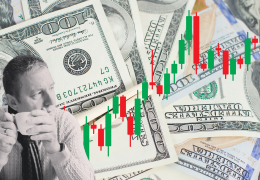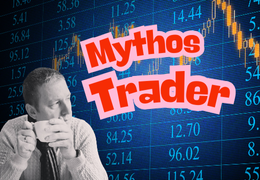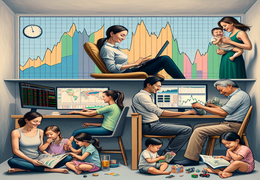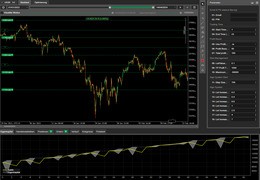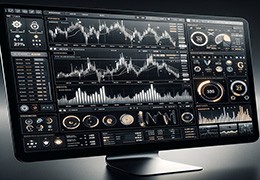Between reality and illusion If you want to know what trading really means—beyond luxury cars, piles of cash, and...
Are traders millionaires? – The truth behind the social media myth
Introduction: Between Reality and Illusion
If you want to know what trading really means—beyond luxury cars, piles of cash, and exotic islands—then read this blog carefully. I'll show you what the term "trader" really means from the perspective of a trader with over 20 years of experience.
I've been trading for a living for many years. But more importantly, I train people who want to learn how to trade profitably. Not with tricks, not with luck, but with structure, discipline, and an understanding of reality. To achieve this, you have to understand how trading really works—not how it's portrayed on social media.
The distorted image: Social media as an illusion machine
On platforms like Instagram, TikTok, or YouTube, we repeatedly encounter the same images: young people posing with expensive watches, driving sports cars through Dubai, or jetting from one villa to the next. The slogan: "I'm a trader and I've made it. You can too."
But if we take a closer look, we realize that many of these supposedly "successful traders" don't earn their money from trading itself – but from marketing their lifestyle. Often, there's no real trading success behind them, but rather a business model based on attention, clicks, and the sale of courses or signals.
Trader or actor? This is a question we have to ask ourselves more and more often.
What is trading really?
Trading isn't a lottery game. It's a profession. And like any profession, there are different levels, experience levels, and business models. Trading is, in truth, nothing more than a business—and this is where my favorite analogy comes into play: the restaurant industry.
Trading = Gastronomy: The Analogy
Imagine you want to open a restaurant. You have several options—each of which reflects a specific type of trader:
1. The small local for a living
You're a one-man business. Maybe you own a small café or a bistro in your neighborhood. You have your regular customers, you make ends meet, and you can live off your business. You're not rich, but you're independent. This is exactly what the daily routine of many retail traders looks like: They're disciplined, work on their setups and strategies daily, don't make any big leaps – but they earn enough to live off it. For many, that's the true goal.
2. The seasonal venue – like après-ski or beach bar
Then there are the seasonal businesses – like me. I see my trading like a successful après-ski bar: I make the most money during peak periods (e.g., strong market phases like the winter months) and can then enjoy a quieter summer period. So, I don't trade with the same intensity every day, but I'm prepared when the big wave hits. Just like a beach bar in the summer or a ski lodge in the winter: When it's going well, it's going well – but you have to be prepared when the rush comes.
3. System catering – trading with bots
Now we come to the franchise models. Imagine a chain in which processes are standardized. Employees work according to clear guidelines; some are more motivated than others. In the trading world, these are automated systems – so-called bots. They act according to programmed rules. Some work reliably, others are error-prone. A good bot system can ensure consistent revenue – just like a good franchise operation.
4. McDonald's & Co. – The Multimillionaires
And then there are the McDonald's of this world. Huge systems, billions in revenue, global expansion. In the trading world, that's the equivalent of people like Warren Buffett, hedge funds, or institutional investors. They earn not just millions—they earn billions. But that's a whole different league. To get there, you need capital, know-how, a team, top-level risk management—and, last but not least, a very long build-up period.
The truth: Not every trader is a millionaire – and that’s okay
Once you understand what kind of “local” you want to run, you can decide how you want to structure your trading:
-
Do you want to be independent and be your own boss?
-
Do you want to start with little capital but grow long-term?
-
Or do you want to build a scalable system?
No matter which model you choose, you have to know that there will be bad days. A lull. Losses. In trading, these are called drawdowns. There are days when no customers come – and there are trades that go against you. But that's part of it. What matters is how you deal with those days.
Trading is a craft – not a magic trick
The question "Are traders millionaires?" is misleading. Some are. Most aren't. And that's okay.
A good trader is like a good restaurateur: He knows his numbers, knows when the market is performing well and when to calm down, has a clear strategy, and remains disciplined. He doesn't live on illusions – but on substance.
If you want to learn trading, don't listen to the loudest people. Listen to those who work quietly day in and day out – and have built a life that suits them.
I help people do just that. With over 20 years of experience and the knowledge that true success doesn't happen overnight—it comes with dedication, practice, and the right plan.

